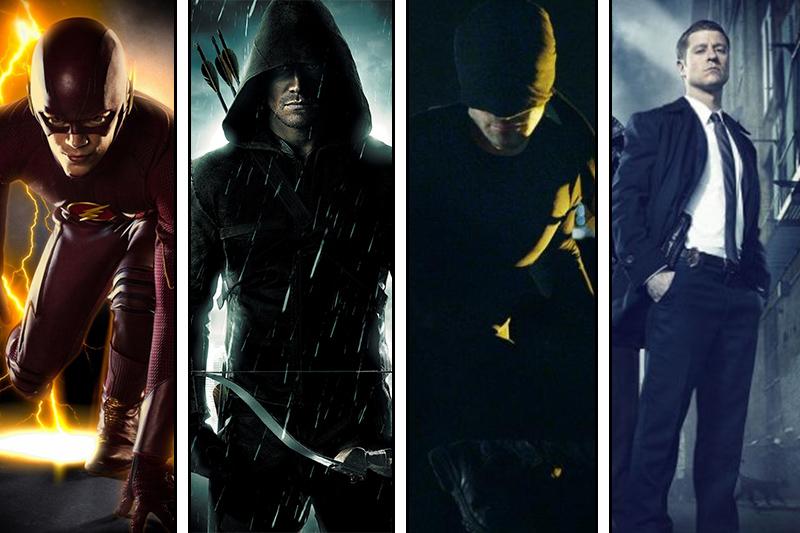The Hero Network: Why TV format is ideal for superhero adaptations
February 4, 2015
“Same bat-time, same bat-channel.” When comic book characters first broke out of their frames in the 50s and 60s, they found their way to the small screen. Weekly episodes of our favorite tight-clad crime fighters wam-bam-powed their way into our parents’ TV screens. But these shows, however nostalgic, would be plagued with corny one-liners and obscured plots. In fact, the effect of this interpretation of superheroes would have a lasting effect. Nearly every major superhero movie from the following few decades followed this goofy, cheesy format. It wasn’t until Tim Burton’s darker reboot of “Batman” that the public realized you could make a more serious hero movie.
Enter the 2000s, when superhero movies made a comeback and we were finally given big screen adaptations of all our favorite superheroes. By the end of this decade, the Marvel Cinematic Universe had created a superhero empire never before seen. But with multi-annual titles and frighteningly high expectations, MCU and superhero movies in general are suffering from something that their original comic counterparts never did. Every movie needs to be in world threatening danger. People don’t pay to go to a theater and watch Spider-Man take down a few petty thieves. But that’s exactly the kind of thing that happens in the comics.
Superheroes are crime fighters. Not every battle is high stakes. But movie format is too grand to allow for some of the smaller conflicts and stories that take place between each sequel or supergroup team-up. That’s where TV has made a comeback.
TV format is the perfect format for comic book adaptations. TV shows are a weekly medium, exactly like most comic books. DC has recently been dominating this form with titles like “Arrow,” “Flash,” and “Gotham.” While Marvel is busy running the silver screen, DC has taken a step back and is showing the world the potential television has for delivering amazing superhero action.
Shows like “Arrow” make the most of their 45 minute time slots. While each installment is shorter than a feature film, the entire season adds up more time than any movie, giving us more action and more opportunity for exploring different storylines. We can spend a few episodes pitting our hero against small time crooks, and by the following week, his arch nemesis could return and give us the super-powered throwdown movies have trained us to crave.
“Smallville” showed us that a well-made superhero TV series had the potential to run for an entire decade. And original titles such as “Heroes” proved that comic books didn’t have to be the only source for superhero shows. But what really makes TV format so ideal for this kind of story is that you are not bound by the same expectations as movies.
Superhero movies all end up being huge action flicks, but television format gives the writers room to slow down or speed up their show. We can have drama or romance, or literally anything else. Superheroes shouldn’t be a genre. It’s a setting. We’re in a world with superpowered individuals, but that doesn’t mean that all we should see is fighting.
When it comes down to it, TV simply allows more freedom to explore and show off some of our favorite characters, and this format is only picking up faster and faster. Marvel recently revealed their upcoming Netflix series “Daredevil,” which is only the first in a four part series leading up to a mini-series crossover of “The Defenders.” In addition, several other comic adaptations are set to appear in the near future with TV versions of “Constantine” and “Preacher” among them.
With so many successful examples and even more planned titles in the works, it is clear that this trend is set to continue for the time being and comic fans couldn’t be more thrilled.
What series is your favorite and which upcoming title are you most excited about? Let us know in the comments below!












